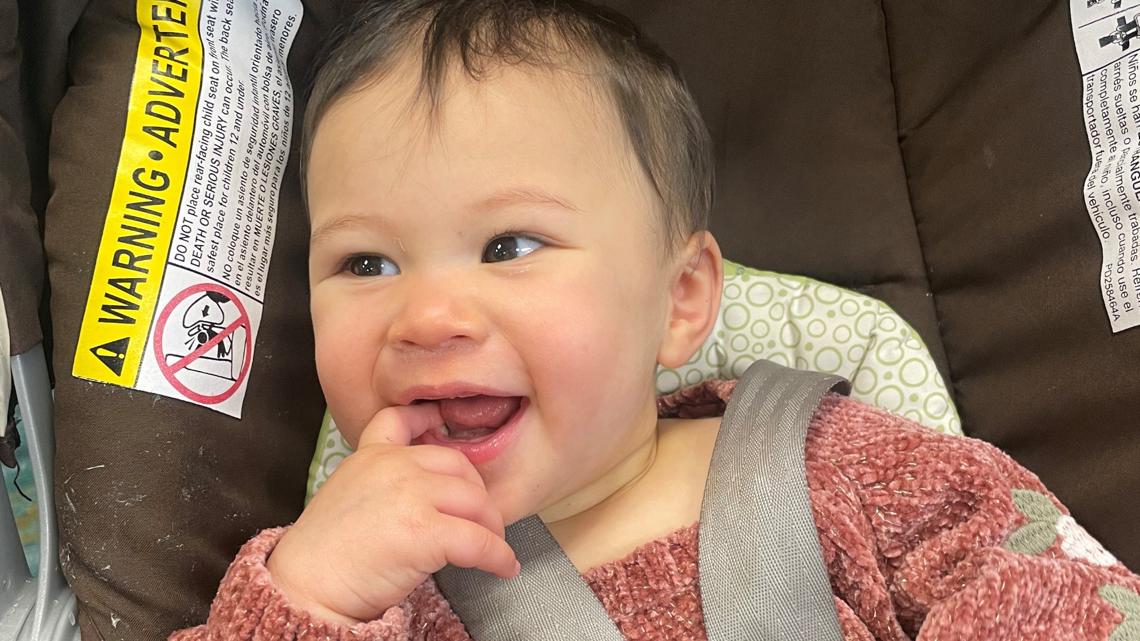The state took 2 Georgia sisters from their parents - why a community disagrees
DFCS has also removed the Hernandez girls from their aunt and uncle's care and from their foster parents.
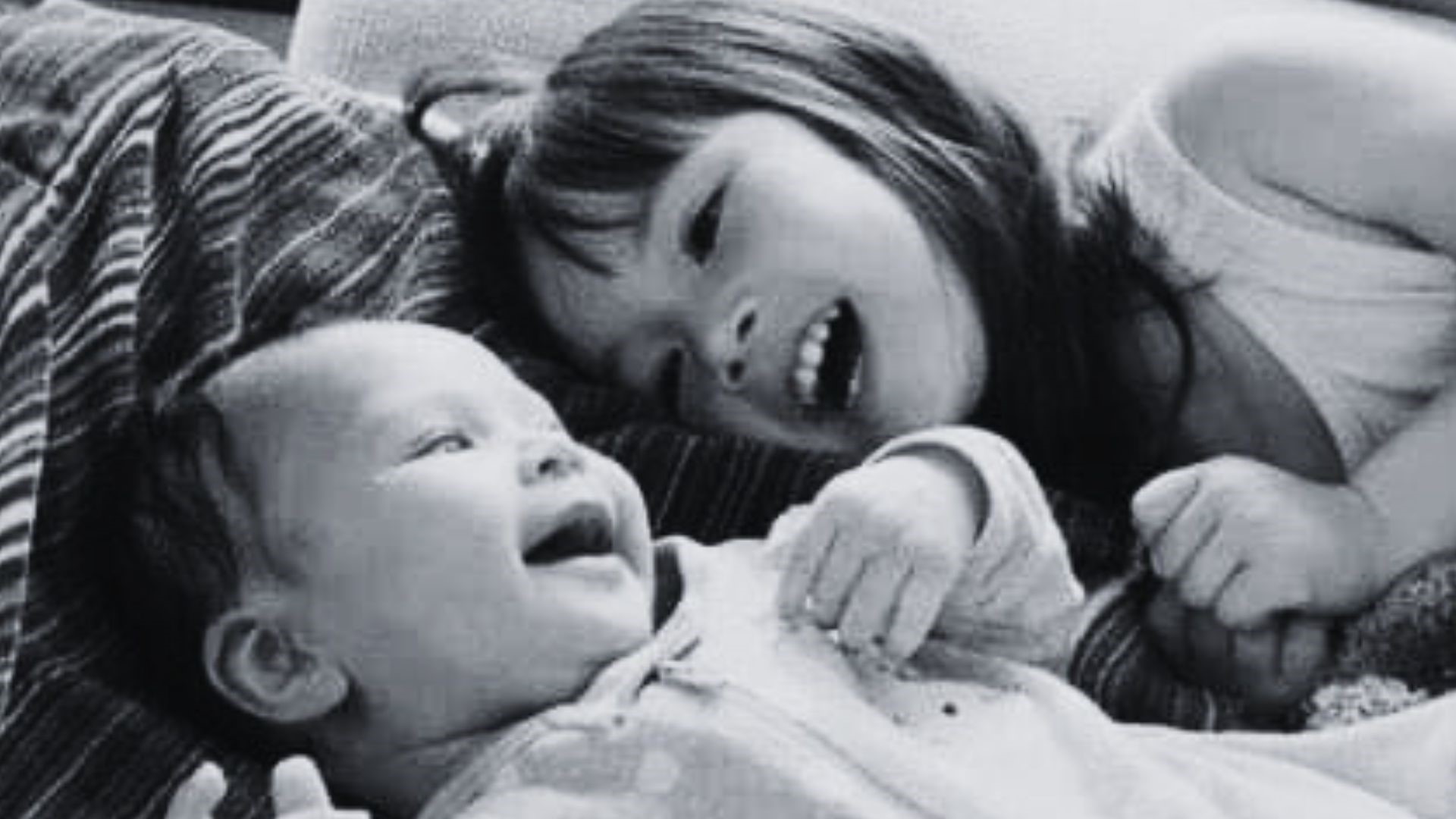
April is the start of National Child Abuse Prevention Month. Gov. Brian Kemp signed a proclamation last week, solidifying Georgia's commitment to raising awareness and advocating for child and family well-being.
To raise awareness, children’s hospitals and community groups across the country will cover their lawns with pinwheels. These "pinwheel gardens" signify community and an effort to create a supportive environment for children to grow up in.
For some Georgia families, it's a reminder of a fight they long to forget. These families adamantly deny their child was ever abused. These parents say they’ve spent tens of thousands of dollars and many sleepless nights fighting in court to prove the injuries their child sustained were actually connected to a medical issue.
These families say it’s the attempt to get help for their child’s mysterious illness that ended up causing them greater harm.
Click the headers at the top of this story to skip to that section.
A family fractured
Matthew and Wilairat "Tuckey" Hernandez are among those families. The accusations of abuse have literally torn their family apart.

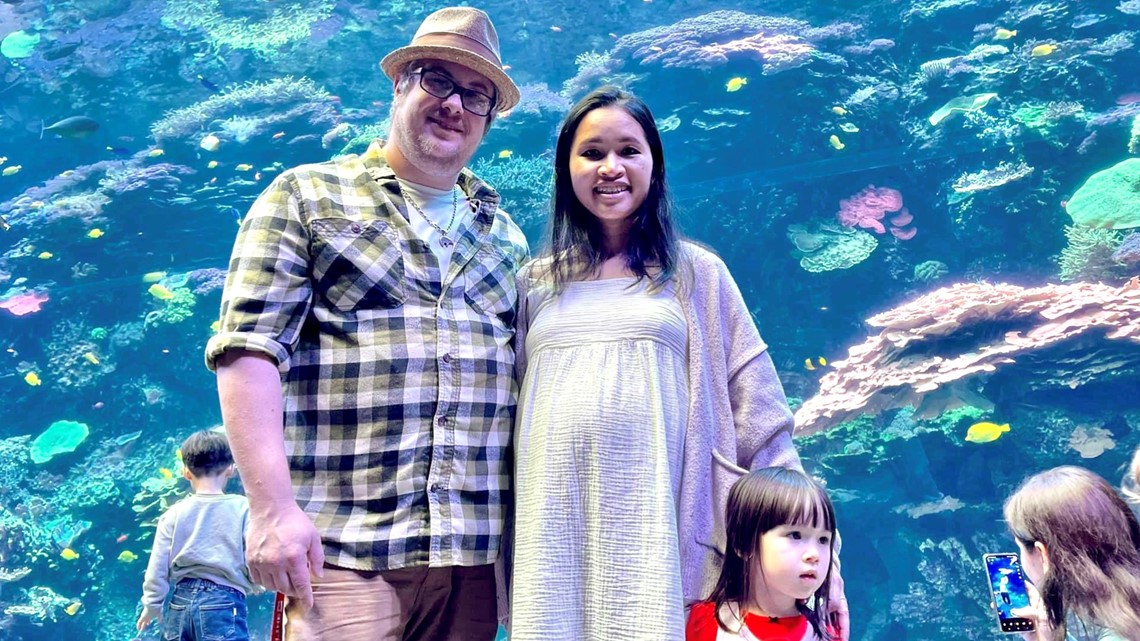
Right now, Matt lives alone - their Forsyth County home frozen in time. Baby bottles sit drying on a rack, even though they haven’t been used in months. There are toys their toddler has likely outgrown sitting on the shelf in her room. It’s been 10 months since either child came into the house.
Both parents face charges of child abuse and aggravated battery. One of the bond conditions set by a Forsyth County judge is that the couple is not to have contact with each other. Wilairat cannot talk with her sister or brother-in-law either. She has had to rely on the generosity of friends to keep a roof over her head.

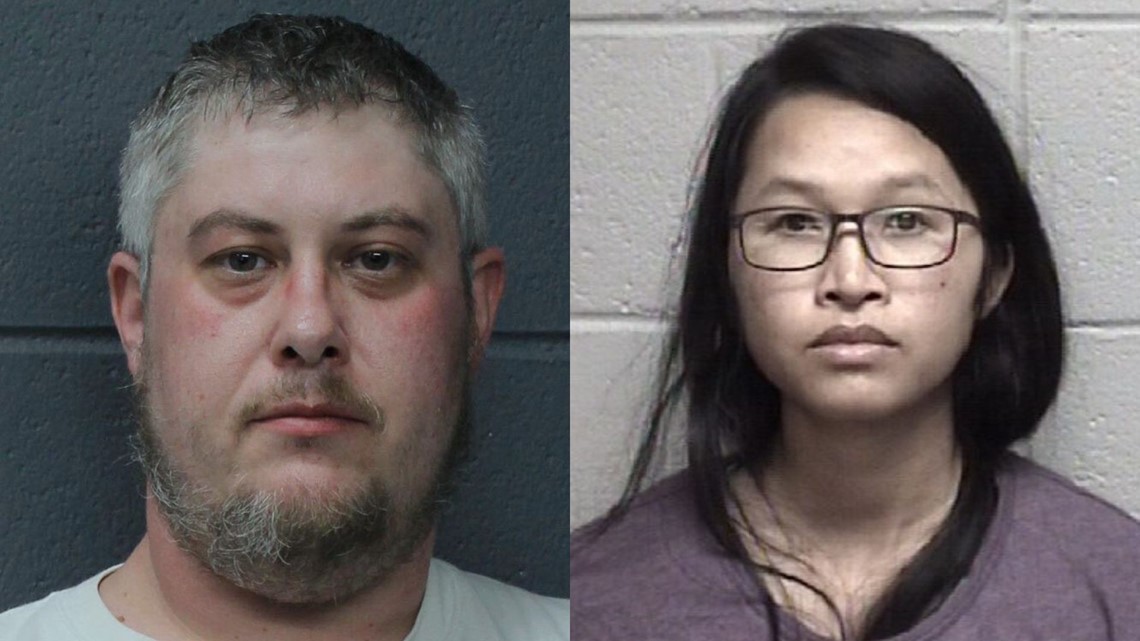
“We love these girls so much," Matt said, "and the state has just, from day one, seemed to be set on ripping us apart."
Neither parent has a criminal history, and 11Alive Investigates has found no evidence of abuse allegations toward their oldest daughter, now 4 years old. The Hernandez's believe there were other, less invasive ways Georgia’s Division of Family and Children Services, DFCS, could have kept a close eye on their baby, such as weekly check-ins, parenting classes, or more frequent doctor visits.
Under that arrangement, the family could have efficiently conducted medical tests to research other possible causes for her injuries while DFCS continued its investigation.
“What’s happening to them could happen to anyone that walked into the hospital with the same issue,” said Jonathan Williams, a foster parent who would eventually become involved in the case. “Most people are in disbelief this can be happening in the U.S., much less Georgia.”
The story continues after the gallery below.
Life-changing ER visit
Their youngest child who is the center of the abuse accusations was born in March 2023. She was only 3-months-old when Wilairat noticed she had a swollen leg. They took her to the pediatrician, who referred them to Children’s Healthcare of Atlanta.
“We did nothing to hide anything,” said Matt.
While talking with doctors, they showed them a picture of a reddish spot that had disappeared, but it was behind the infant’s ear a few days prior. The Hernandez’s say they answered questions without hesitation, unaware the child abuse pediatrician, also called CAP, had already found fractures while reviewing the baby’s X-rays.
Those X-rays showed “some healed ribs and some fractures on her femur and tibia,” said Matt.
Fractures that, to the CAP, could only mean abuse.
The Hernandez family shared photos of their daughter's bruises that prompted them to seek medical attention. The story continues after the gallery below.
Abuse or medical condition?
A parent who has abused their child isn’t likely to admit it. But in the Hernandez's case, Matt points out the injuries didn’t magically stop when he and his wife lost custody.
First, the girls went to live with their aunt and uncle, Panyarat and Tony Schulz.
“About five weeks in, we woke her up one morning and she had the strange bruising, coloration on her skin,” recalled Tony.

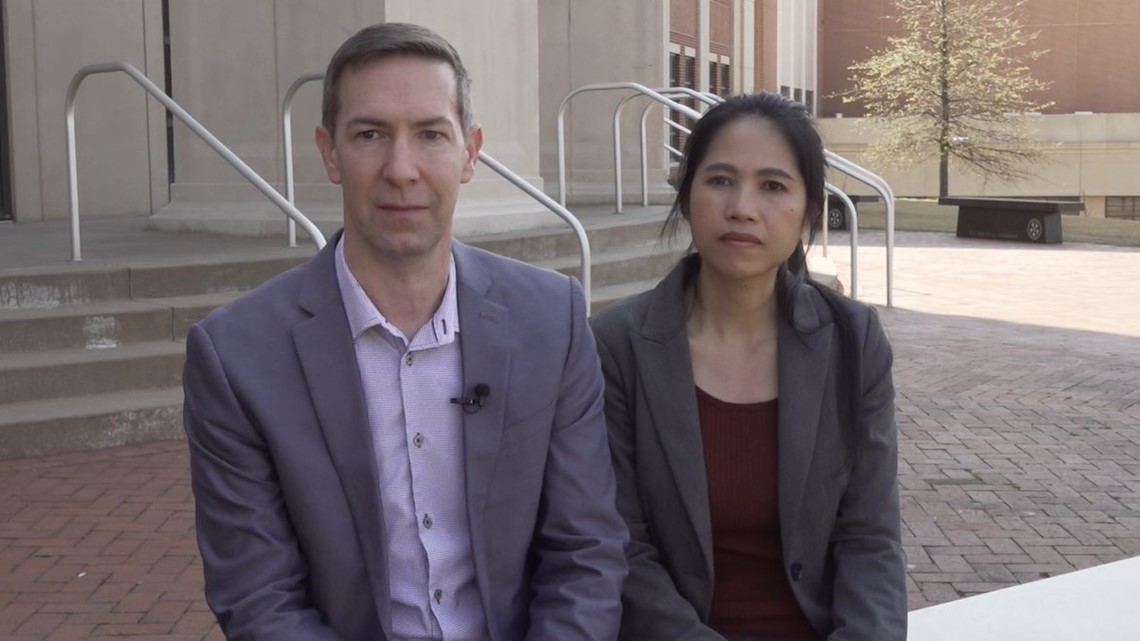
DFCS accused them of letting the mother, Wilairat, sneak over, where she again abused the baby. The Schulz’s adamantly denied they, or anyone, hurt the child, offering the security footage of their home as proof the mother was never there.
Still, the girls were removed.
But the marks on the infant’s body kept showing up in her new foster home and daycare. Jonathan and Jennifer Williams started raising questions about the child's health when DFCS asked them to watch the girls for a few days.
“I was concerned about some of the physical things in (the child), just how she held herself. Her little skull seemed kind of sunken into me,” said Jennifer, who used to work as a newborn and family photographer.
They told the juvenile court judge they believed the baby had undiagnosed health problems and were shocked by the testimony defending DFCS’ decision to instead put the girls in state custody for abuse.
“I saw nothing presented as evidence that indicated this family hurt their child at all,” said Jonathan Williams.

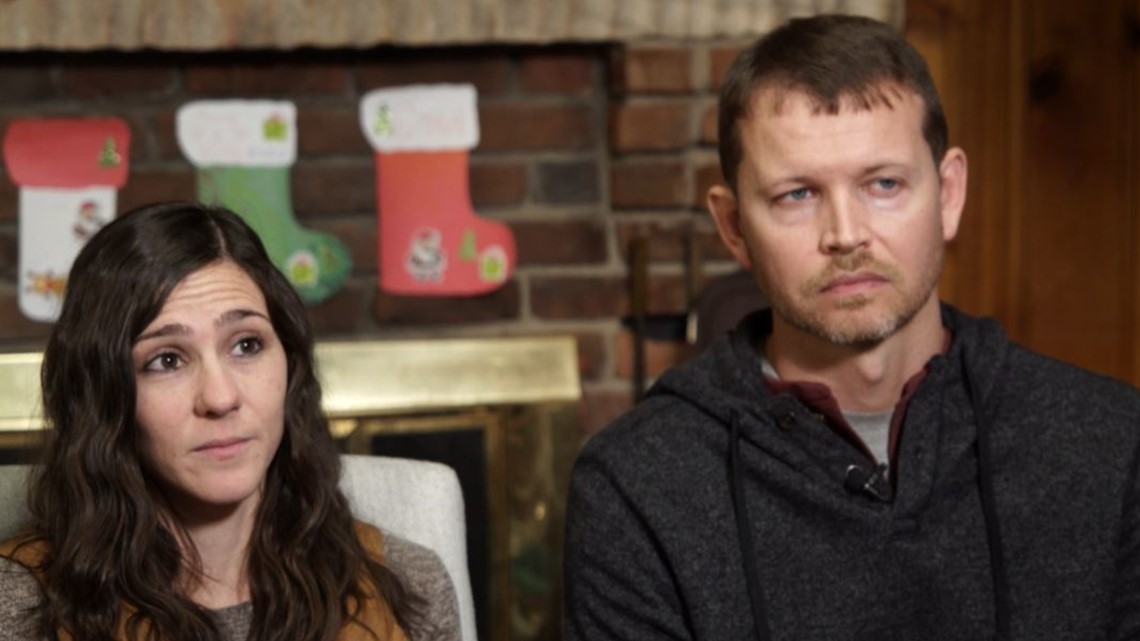
Jennifer Williams grew up with parents who fostered children and had fostered with her husband off and on for more than a decade before meeting the Hernandez family. She was no stranger to the child welfare system or court proceedings.
“They were treating this family like they were criminals. They were treating them with zero respect,” she said.
The state no longer uses the Williams to care for foster children. The Williams' say DFCS was concerned they “no longer shared the same goals.”
Almost a year later, the infant's new caregiver told the judge in a hearing related to the criminal case that something was still not right.
“She’s under DFCS’s care, she’s under Medicaid - we have to follow these guidelines," Tram Nguyen, the child's current caregiver said. "But I’m like, can I take her to a different doctor myself? I’ll pay for it because we need to figure this out. It’s bothering me because I want to fix whatever is going on in her situation."
Besides her parents, the child has now lived with three other caregivers. In March she celebrated her first birthday.
Scroll through the interactive carousel below to learn more about those who have been caregivers for the Hernandez girls. Click the photo to learn more.
Doctors weigh in
Doctors have figured out why the child gets those bruise-like marks - and it has nothing to do with abuse, they say.
A diagnosis
In February, a pediatric cardiologist diagnosed the child with acrocyanosis. This condition can cause discoloration in hands and feet when an artery tightens for too long, causing the blood vessels to narrow. Temperature and stress can trigger the condition, and in some cases, it can be linked to a genetic mutation.
While DFCS insists acrocyanosis has no connection to the fractures found, it does show the risks of rushing to judgment.
The Hernandez family shared photos of their daughter's bruises that prompted them to seek medical attention. The story continues after the gallery below.
Vitamin D deficiency
According to medical records provided to 11Alive Investigates after the Schulz’s brought the baby back to the hospital in July, “the child protection team expressed concerns that the new bruises on (the child's) leg showed linear patterns and were highly concerning for and most consistent with another instance of child physical abuse.”
It’s a fear that led DFCS to remove the girls from their aunt and uncle. Even though, seven months later, the court would come to find those "injuries" were never injuries at all.
Court records show no one disputes:
- The X-rays reveal fractures to the child's bones
- Wilairat’s vitamin D levels were low during pregnancy
- The baby’s vitamin D levels were low when she first came into the hospital
However, doctors disagree on the cause of those fractures and the impact of that vitamin D deficiency.
Doctors and radiologists at Children’s Healthcare of Atlanta insist the scans show a type of fracture almost always associated with abuse. Medical records indicate that despite the low vitamin D levels, they believe the infant’s bone density appeared normal.
According to court records, the hospital’s policy is to have two radiologists independently read the results and issue a finding. If the results don’t match, the director does a third reading. In this case, the first two radiologists made the same determination.
But the medical experts hired by the family to review the baby’s records believe the vitamin D deficiency led to rickets. In children, rickets often manifest in the softening of the bones after a prolonged period without the appropriate amount of vitamin D.
'Reasonable degree of medical certainty'
Dr. Kris Sperry testified this would increase fragility and loss of normal structural integrity and stated in his written report, “To a reasonable degree of medical certainty, that (the child) is not the victim of abusive inflicted injuries.”
The family told DFCS about a camping trip where the baby’s leg got caught in the car seat as they tried to think of any event that might have caused the fractures found on the X-rays.
“We didn’t think about this too much because she wasn’t crying. We mentioned this to the medical professionals and attorneys involved, and they kind of dismissed it," Tony Schulz, the child's uncle said. "But once you factor in the low vitamin D, it makes sense that that could have easily caused the problem."
The other medical expert, Dr. Anthony Perszyk, pointed to places on her scans he believed showed evidence she was still losing bone mineral in her ribs, spine, and skull.
The baby was 3 months old when doctors realized her vitamin D levels were low and started giving her supplements. It’s unknown how long she might have been vitamin D deficient in the womb, given her mother also tested low.
As soon as the child started treatment with Children’s Healthcare of Atlanta, medical records show she was given vitamin D supplements, which can resolve a metabolic bone disease like infantile rickets.
In court, the lack of new fractures while in foster care is often used against families to prove they must have caused the injuries. But their defense would argue that it’s really a sign that the vitamin D supplements did their job, solving the medical problem.
One opinion holds weight
The court ruled Sperry wasn’t credible because he wasn’t a pediatrician, nor did he have training in child abuse. The other expert, she ruled, wasn’t persuasive.
“It seems like entire cases hinge on just one child abuse pediatrician saying this is abuse," Tony Schulz, the child's uncle, said. "And his word - that is just opinion sometimes, doesn’t even have hard evidence- will carry all the way to prosecution."
The child's parents want genetic testing to rule out any other illnesses that could have weakened her bones.
They believe she may have Ehlers-Danlos Syndrome, often associated with people who have flexible joints. People with EDS can often move their joints beyond the normal range because the connective tissue that holds them together is looser. Some believe it can also lead to an increase in bone fractures.
However, because Matt and Wilairat Hernandez do not have custody of their daughter, they can’t do much without the court’s permission.
From the beginning, the parents say they told DFCS they would pay for it. It took six months and a court ruling to get permission to find doctors and research the kind of tests they would like performed - but it’s up to DFCS to make the appointments.
It’s a process that could take months - even years.
Functioning in fragments
Meanwhile, the Hernandez family functions in fragments.
Each week, each parent gets a few hours of supervised visitation with their children. The couple can never be in the same room together and neither parent has custody.
Matt said that, as a married man with two daughters, life feels lonely.
“It's just cruel to keep my wife and I, who have been married since 2012, separated for so long," he said. "It's just cruel to know that they're tormenting a 4-year-old child, and just to continue to push through it is just cruel."
11Alive Investigator Rebecca Lindstrom has been looking into the Help That Harms. Follow her investigation on demand via our streaming app 11Alive+ Available on Roku, Apple TV and Amazon Fire TV.

